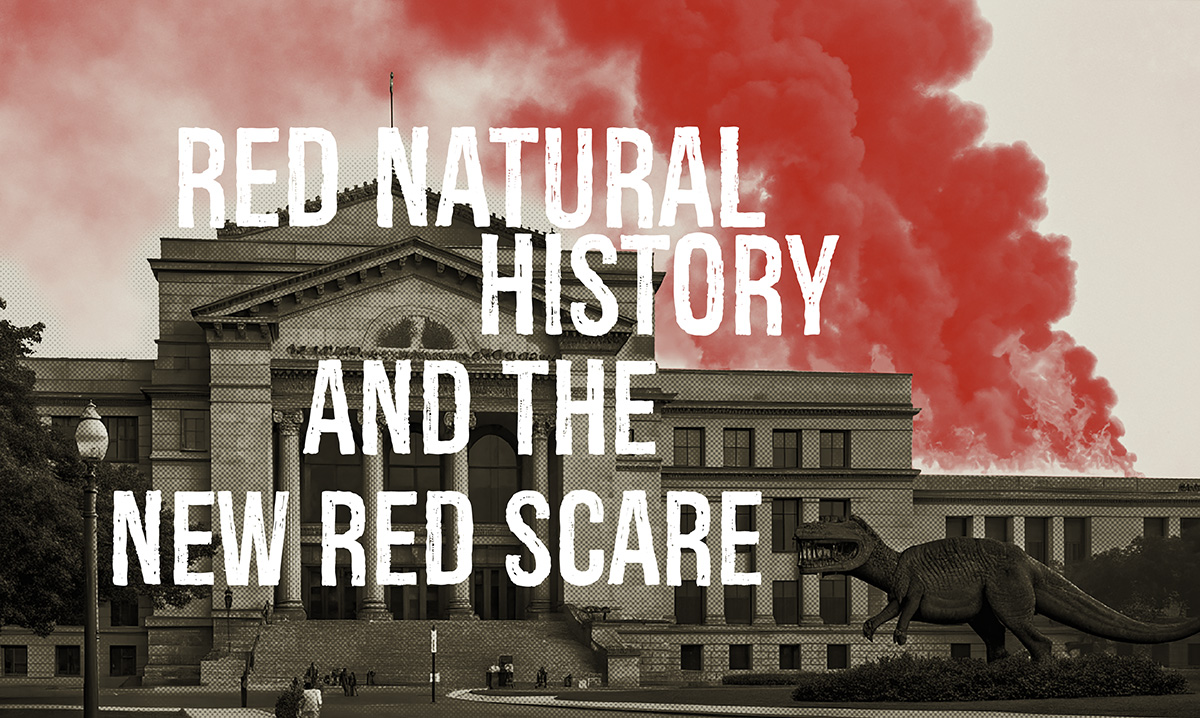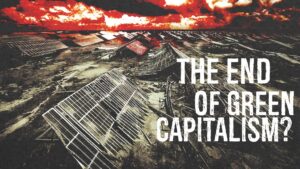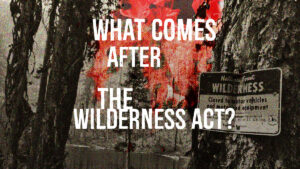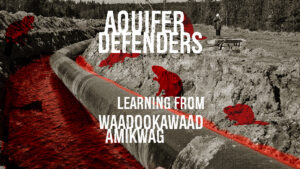Wednesday, May 28, 2025 — 6pm ET / 3pm PT In just a few months, the second Trump Administration has moved swiftly to dismantle key institutions of science, history, and environmental protection, purging expertise from environmental, land management, and scientific agencies, slashing federal funding for environmental research, and sanctioning and deporting thousands of student protestors, particularly those voicing solidarity with Palestine. The Administration’s aim is clear: to purge the country’s institutional landscape of ideologies and perspectives it deems “anti-American”—visions of equality and justice that are at the heart of the insurgent knowledge practices we call Red Natural History.
In just a few months, the second Trump Administration has moved swiftly to dismantle key institutions of science, history, and environmental protection, purging expertise from environmental, land management, and scientific agencies, slashing federal funding for environmental research, and sanctioning and deporting thousands of student protestors, particularly those voicing solidarity with Palestine. The Administration’s aim is clear: to purge the country’s institutional landscape of ideologies and perspectives it deems “anti-American”—visions of equality and justice that are at the heart of the insurgent knowledge practices we call Red Natural History.
This roundtable brings together members of the first cohort of Red Natural History Fellows to explore the conditions for activist research under the new “Red Scare.” How are environmental researchers, scientists, community groups and nonprofits responding to this new landscape of AI-driven surveillance and state-led crackdowns on dissident thought? What infrastructures and political strategies are becoming necessary? What’s new about the new Red Scare, and what is as old as the United States itself? Speakers will reflect on the implications for their own institutions, disciplines, and practices, the histories and traditions we can learn from, and the resources we need—not just to survive this moment, but to shape what comes next.
SPEAKERS
 Rosalyn LaPier (Blackfeet/Métis) is an award winning writer, ethnobotanist, environmental activist and historian. She/they work within Indigenous communities to revitalize Indigenous & traditional ecological knowledge (TEK), to address environmental justice & the climate crisis, and to strengthen public policy for Indigenous languages. The author of Invisible Reality: Storytellers, Storytakers and the Supernatural World of the Blackfeet (2017), she/they are a 2023-2025 Red Natural History Fellow. Rosalyn is an enrolled member of the Blackfeet Tribe of Montana and Métis.
Rosalyn LaPier (Blackfeet/Métis) is an award winning writer, ethnobotanist, environmental activist and historian. She/they work within Indigenous communities to revitalize Indigenous & traditional ecological knowledge (TEK), to address environmental justice & the climate crisis, and to strengthen public policy for Indigenous languages. The author of Invisible Reality: Storytellers, Storytakers and the Supernatural World of the Blackfeet (2017), she/they are a 2023-2025 Red Natural History Fellow. Rosalyn is an enrolled member of the Blackfeet Tribe of Montana and Métis.
 Andrew Curley (Diné) is a geographer and a Red Natural History Fellow. His research focuses on the everyday incorporation of Indigenous nations into colonial economies. Building on ethnographic research, his publications speak to how Indigenous communities understand coal, energy, land, water, infrastructure, and development in an era of energy transition and climate change. Curly’s first book Carbon Sovereignty: Coal, Development, and Energy Transition in the Navajo Nation (University of Arizona Press) came out in 2023.
Andrew Curley (Diné) is a geographer and a Red Natural History Fellow. His research focuses on the everyday incorporation of Indigenous nations into colonial economies. Building on ethnographic research, his publications speak to how Indigenous communities understand coal, energy, land, water, infrastructure, and development in an era of energy transition and climate change. Curly’s first book Carbon Sovereignty: Coal, Development, and Energy Transition in the Navajo Nation (University of Arizona Press) came out in 2023.
 Kai Bosworth is a geographer and a Red Natural History Fellow with The Natural History Museum. His first book, Pipeline Populism: Grassroots Environmentalism in the 21st Century (2022) investigates how contemporary environmental struggles and resistance to pipeline development became populist struggles.
Kai Bosworth is a geographer and a Red Natural History Fellow with The Natural History Museum. His first book, Pipeline Populism: Grassroots Environmentalism in the 21st Century (2022) investigates how contemporary environmental struggles and resistance to pipeline development became populist struggles.
 Beka Economopoulos has been an organizing director, communications consultant, and cultural strategist for more than 25 years. She is a co-founder of Not An Alternative (2004–), a nonprofit art and social justice collective, and Director of the group’s ongoing project, The Natural History Museum (2014–), a touring “museum for the movement.” Beka was a Board Member of the 2017 March for Science, a 2018 Roddenberry Fellow, a 2020 recipient of a Creative Capital award, one of Grist magazine’s top fifty environmental leaders of 2020, and a 2023 recipient of the Anonymous Was A Woman Environmental Art award.
Beka Economopoulos has been an organizing director, communications consultant, and cultural strategist for more than 25 years. She is a co-founder of Not An Alternative (2004–), a nonprofit art and social justice collective, and Director of the group’s ongoing project, The Natural History Museum (2014–), a touring “museum for the movement.” Beka was a Board Member of the 2017 March for Science, a 2018 Roddenberry Fellow, a 2020 recipient of a Creative Capital award, one of Grist magazine’s top fifty environmental leaders of 2020, and a 2023 recipient of the Anonymous Was A Woman Environmental Art award.
This event is curated by The Natural History Museum for Natural History for a World in Crisis, a programming series organized by the 2023-2025 cohort of Red Natural History Fellows with The Natural History Museum. Made possible with support from the Henry Luce Foundation and 4Culture.




